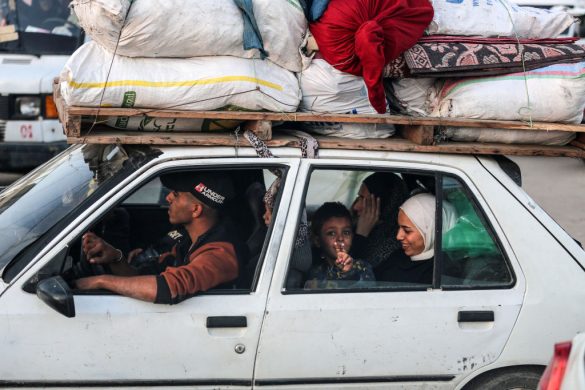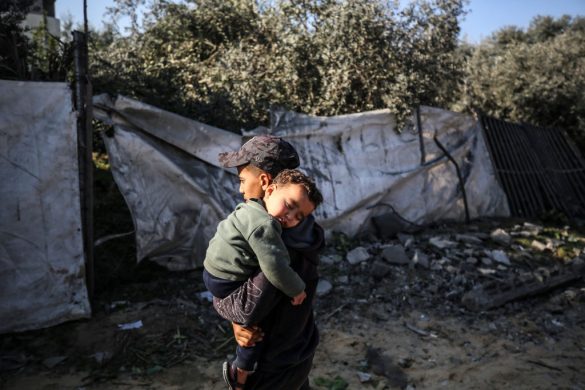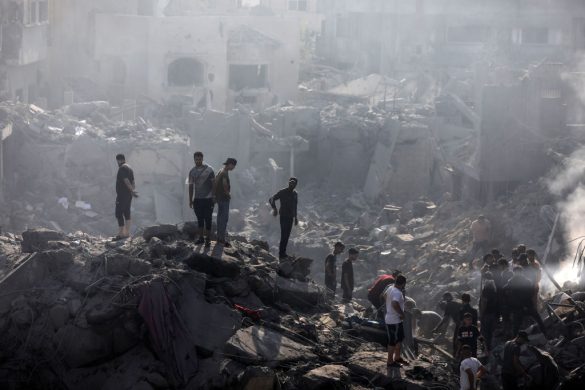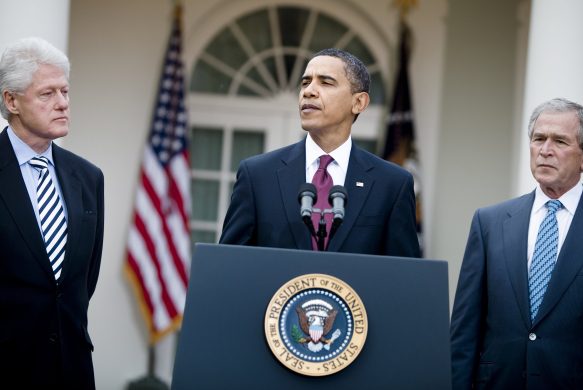I weekenden erobrede oprørere fra det islamistiske gruppe ISIL byen Mosul i det nordlige Irak. Det forlyder, at op mod 500.000 indbyggere fra byen og omegnen er flygtet fra kampene. De tilbageværende mangler vand da vandforsyningen er blevet ødelagt.
BAGHDAD, 11. June 2014 (IOM): IOM (International Organization for Migration) sources in Mosul, Ninewa governorate, the second largest city in Iraq, have reported that an estimated 500,000 Iraqis have fled their homes fearing increased violence following a complete takeover by Armed Opposition Groups (AOGs).
On the morning of 7th June 2014, heavy fighting erupted between the AOGs and the Iraqi Security Forces (ISF) resulting in heavy casualties. On the night of June 9th the ISF left the city, allowing the AOGs to take control of the town, including government buildings, Mosul International Airport, and all police and military bases.
IOM’s Rapid Assessment and Response Teams (RARTs) have been monitoring the situation on the ground and report that their sources estimate that the weekend’s violence displaced over 500,000 people in and around the city.
Byen bombarderes fortsat
A curfew has been in place since Thursday, 5th June and indiscriminate shelling is reportedly continuing. Internally displaced persons (IDPs) are not permitted to use vehicles inside the city, which limits their access to basic services and is forcing them to flee on foot, according to IOM staff.
IOM has found three main patterns of displacement: IDPs moving from the west bank to the east bank of the city; IDPs fleeing to other parts of Ninewa governorate; and IDPs moving from Mosul city to the Kurdistan Region (KR).
The latter now need to have family already residing in the KR or a sponsor to receive permission to enter the governorate from Ninewa.
The violence has resulted in a high number of casualties among civilians. The main health campus, a group of four hospitals, is inaccessible, as it is in the middle of an area in which there is fighting. Some mosques have been converted to clinics to treat casualties.
Mangel på drikkevand
Western neighborhoods of Mosul are also suffering from a lack of drinking water, as the main water station for the area was destroyed by bombing. Families are also running low on food, particularly families hosting IDPs in their homes.
Few areas are receiving electricity, and when they do it is for only one to two hours a day. Most generators are not working because there is no fuel.
Iraq’s Ministry of Migration and Displacement and civil society organizations in Mosul have responded by providing IDPs with basic non-food relief items. Local authorities have also appealed for support from IOM and other agencies as displacement grows and the humanitarian situation deteriorates.
IOM will continue to monitor the situation on the ground and respond to the needs of the most vulnerable IDPs.
In 2014, violence in neighboring Anbar governorate has claimed an estimated 5,520 civilian lives and resulted in the displacement of over 70,000 families throughout Iraq.
After six months, the conflict has now spread dramatically and IDPs have now been identified in 17 of 18 Iraqi governorates.















